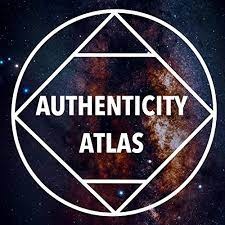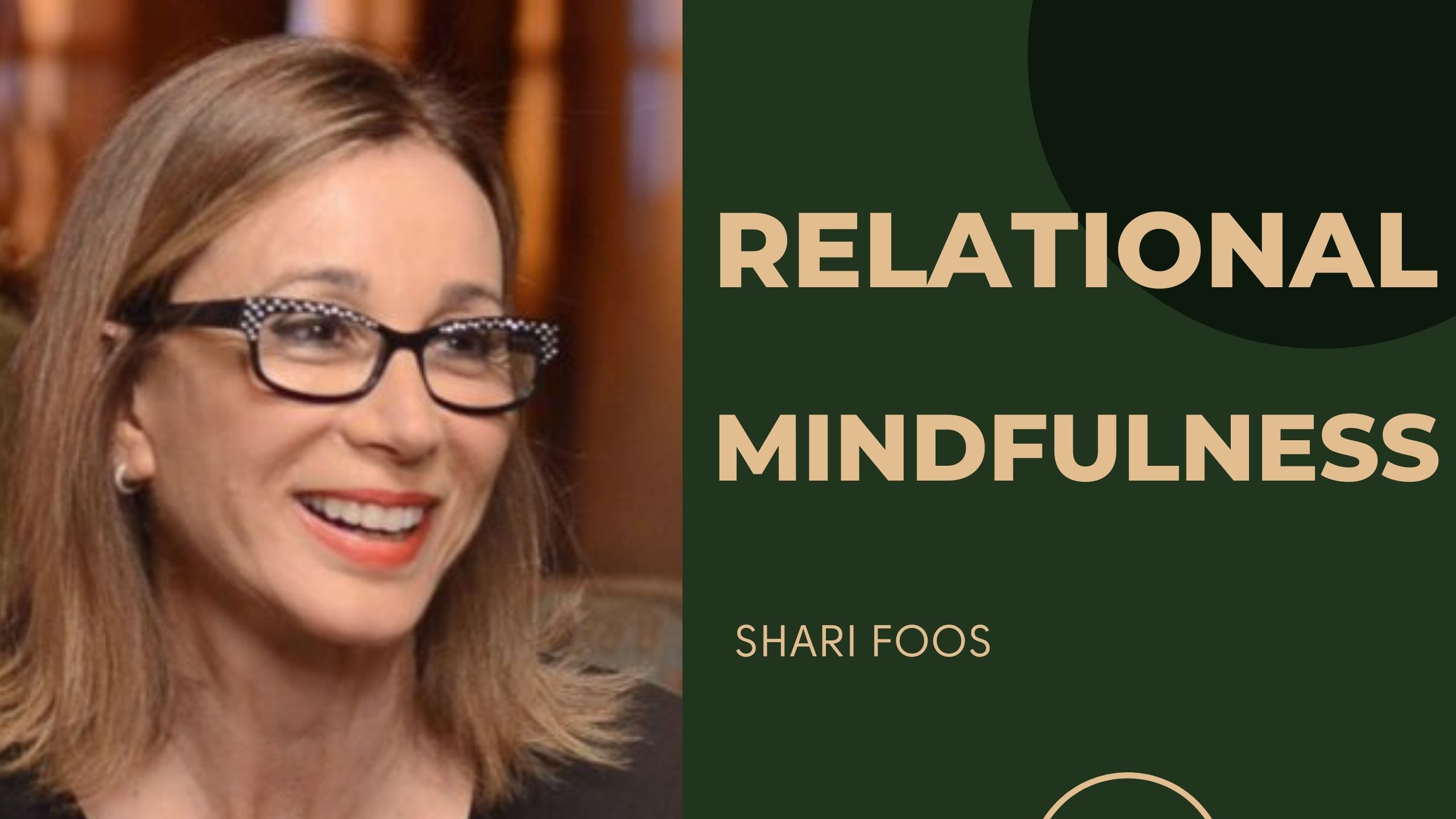Relational mindfulness, is the humanistic practice of compassionately relating to others, with an open mind and mutual respect. By putting aside your own beliefs and judgments, you can better empathize and understand others from their perspective.
Download the podcast here:
Bio
Shari Foos is a Marriage and Family Therapist, adjunct professor and the creator of The Narrative Method, a California 501c3 non-profit organization. Part of the Human Connection movement, TNM creates programs, products and experiences that address the growing isolation and need for real connection through sharing stories. Foos also co-founded the Bridge in 1999, a free humanities program for low-income adults at Antioch University Los Angeles. She received a MS in Narrative Medicine from Columbia University and a MA in Clinical Psychology from Antioch University Los Angeles.
As a sought-after expert on the subject of, relationships, remote group dynamics and meaningful connection, her writing and commentary have appeared in a range of online and print publications and podcasts, including Real Simple, Huffington Post, Women’s Health, KBLA, Fatherly, Thrive Global, Shondaland, The LA Weekly, Sparks & Honey Culture Briefings, Sondership, Let Pleasure be The Measure, and Bustle. Ms. Foos serves on the board of the City Kids Foundation and is the recipient of the New Directions for Veterans Community Hero Award (2015) and The Antioch University Los Angeles Lifetime Achievement Award (2016).
Sponsored AD
One of the best things you can do to improve your health is get at least 7 hours of quality sleep every night. I know, it’s hard to get that much sleep. But listen, it’s super important. Because your body heals itself when you sleep.
And if you’re not getting enough quality sleep, you’re increasing your risk of disease and make it harder to lose weight!
Would you like to know an easy way to get more quality sleep every night? Make sure you’re getting enough MAGNESIUM.
Believe it or not, around 75% of people don’t have enough of it. Which helps explain why so many people have sleep problems.
Unfortunately, most magnesium supplements are not full spectrum. So, they won’t fix your magnesium deficiency or help you sleep better.
There are actually 7 unique forms of magnesium, and you must get ALL of them if you want to experience its calming, sleep-enhancing effects. That’s why I recommend Magnesium Breakthrough by Bi-Optimizers.
Simply take two capsules before you go to bed and you’ll be amazed by how much better you sleep.
For an exclusive offer for my listeners go to magbreakthrough.com/transformyourmind to save up to 42 percent.

Childhood trauma affects our adult relationships
Shari: I do think every one of us has had, trauma, different degrees, but we certainly all know the feeling of loss or shame or humiliation, or unfair treatment etc. I think of emotions like a piano with all of the keys, we have all of them to different extents at different times. But even if we don't always use those really high notes or the low, low, low, notes, they're there and that serves as our empathy. And because of that, we can sit with someone who's going through something terrible that maybe in our day-to-day life, we've never experienced, but we can feel it in our soul because it's a human experience.
When we put ourselves aside to be truly present and available with our lovingness acceptance or non-judgment or empathy, to hear someone's story, from their perspective, not our judgment or assumptions. That person feels better. No matter what the problem is, they feel better, because without being heard, we go crazy, that is all part of, relational mindfulness.
When someone comes to you who you love, and they're really excited about something and you're so excited with them, that’s when you are aligned, right? You are, head-to-head, heart to heart. That's easy. But when somebody comes to you, with a complexity that you have a lot of feelings about whether it's addiction or someone's choice of spouse or whatever that may be. It's more difficult. And that's why we practice awareness, wonder, empathy that is called, AWE, or, relational mindfulness.
Sponsored Ad
- I want to introduce you to the amazing beauty brand Thrive Causemetics. A High-performance beauty and skin-care products line made with clean, skin-loving ingredients.
- I have been using Thrive Causemetics brilliant eye brightener, liquid balm lip treatment and liquid lash extensions mascara. My Facebook friends all commented on how my eyes were popping, and how beautiful my lashes looked. And of course, my brilliant smile with the lip treatment.
- The Liquid Lash Extensions Mascara is Thrive Causemetics Best-selling product with more than 20,000 five-star reviews. This Ultra-lengthening, eye-opening mascara lasts all day without clumping, smudging, or flaking.
- Thrive Causemetics mission is Bigger Than Beauty™: For every product purchased, Thrive Causemetics donates to help communities thrive (they have over 300 giving partners across the country supporting numerous causes).
- Now is a great time to get Thrive Causemetics for yourself!
- Right now, you can get 15% off your first order when you visit thrivecausemetics.com/TRANSFORM

Building relational mindfulness with AWE
Myrna: Exactly. And here's where I think it's going to lead into something else, I know you're interested in, which is, relational mindfulness.
You had a bad childhood bridge, the gap for us. How did you go from having a bad childhood to being a therapist, and a, marriage therapist? Did it have something to do with your parents’ marriage?
Shari: Well, yeah, that wasn't very good, my father was a rageaholic and it was at a time where even more so than now, there was a lack of understanding about, mental health. And so, he wouldn't seek treatment and it just wasn't in the mentality of people then. So as a result of my having a childhood in which I was wounded, and on top of that, I was never heard or seen, you know, and it's not uncommon. Lots of people grow up like that, but don't know that it could be better. So, I was fortunate in that I had friends and I would go to their houses and see like, Wait a minute. This is different from my house.
I watched Leave It to Beaver, where the father would, talk, about it in the library. Our family definitely didn't have talks. As a result, and probably because of who I came in as into the world, I've just always been incredibly passionate about what makes people feel behave. So, I would study my father, the sweat on his upper lip, depending on what was happening there. I knew he was about to blow, and that's when I got interested in, body language.
Sponsored Ad
Lets talk about Sludge, It what happens after you drive your vehicle for a while. It's a buildup of motor oil that gels then collects dirt, metals and unburned fuel. Sludge prevents oil from getting to the critical engine parts it’s designed to protect. You’ll notice your vehicle running rough, stalling, even vibrating. That’s because friction is damaging your engine. JillCat Proline ™ is the solution. The science was engineered for aerospace, tested in professional racing and used by our military. Now you can use this well kept secret to protect your engine from future build up, extend the life of the vehicle and save on repair costs order at www.JilcatProline.com

Relational mindfulness starts with reading body language
Myrna: That is excellent on so many levels. One, let's, talk, about the, talk, issue. I mean, I love that, when I'm talking to someone on the show, I can always bring in personal experience. I read a lot of books, I listen to podcasts and watch television shows. Just yesterday, I was watching of all things Reba, where the it was meant to be comedy, but Van was talking to Reba about her relationship with her daughter and he says, you guys do something called, talk!
And that was so funny. And that's basically what you're just saying. You went to other places and saw people actually talking and there was no talking going on in your house. So, you're right, about your, childhood trauma. Everything starts from there. In fact, I was even reading this book yesterday and it says that every child goes through some kind of emotional damage, even the ones that think they had a great, childhood.
So, talk to us now about, relational mindfulness, and how this, awareness, builds, relationships. You know, a lot of times men has moods, and women have moods, and being aware of when they're going into a mood or something could be, relational mindfulness.
Sponsored Ad
Are you looking for cheap and fashionable clothing that you can create your own label? Then Check out Belentti.com. Locally produced in the US for faster production, shipping and the best quality. Belentti.com got everything you need for summer, winter and autumn to stay fresh!
Belentti clothing was created with one ambition namely customer satisfaction. Our goal is to put you first and offer the best service possible.
So, if you want to be your own label, head over to Belentti.com. Shop for hoodies and sweatshirts, tea shirts, jackets, sunglasses and much more. Shop and support a worthy cause. For every purchase Belentti.com will donate 20 cents to The Ocean CleanUp Foundation! That website again is Belentti.com.

Talking is the start of communication
Shari: Right, that's a great concept. And it's a great question. Here's again, I know it's a new word. It's gonna take a while to sink in. But that talking thing, talk, talk, whatever. When you live with someone, you don't have to consciously think whoa, his shoulders are slumped or, her bottom lip is really pouty but there is a tremendous value in our being able to break down the, communication, the nuanced, communication, that is silent, because it's one thing that we rely on we rely on it not just for survival.
That's what lovemaking is. And that's what disconnecting is. So, here's, here's a good thing that you may do consciously or unconsciously, but you could see that the other persons in a bad mood, and then maybe it triggers you to think, Oh, great. Now I got to take care of you. You know, I have some needs too, but had you been able to, talk, to the person you both might have found out what was going on with each other? Here's the number one thing to do. It's so easy. If you need to have a serious, talk, because when we, talk, about, relational mindfulness, it's a very deliberate action.
It would be really hard to live in that 24/7 You know, but it's a state of hyper awareness. Of the impact of your words, settled communications, as well as the other person's. And the idea is you never begin a conversation like that, unless both people in this moment feel willing to be selfless and take turns listening.
And it's okay. It's gotta be okay if the persons not there. Because we know that sometimes they'll say, okay, I'll talk about something. And if your heart isn't into it, and a person is asking you to really look at it from my perspective, if there's resistance, it's not a good time to talk about it. It's okay, let's wait. That's, relational mindfulness.
Sponsored AD
Dana Gillies & Tatyana Kirsanova (Best friends and corporate professionals) are the hosts of the Authenticity Atlas Podcast
This podcast is about helping people navigate their way towards a more joyful and authentic life, to learn how to become a better person and understand yourself and others better.
We are VERY vulnerable – especially considering we are corporate professionals.
Download and listen to the Authenticity Atlas Podcast on Apple iTunes or wherever you get your podcasts.

Relational mindfulness builds deeper connections
Honestly, you could cancel out so many problems with, relational mindfulness. It's just good to hear for 20 minutes five minutes, whatever. Would you be willing to have a session of all where we're both agreeing to mutual respect, awareness, wonder and empathy, taking turns sharing our feelings and then reflecting them back to the other person.
Reflecting them back in the storyteller, making sure that they've got it right. And lovingly, of course, correcting each other, then we've got it right. Now we can move on to another point that the same person estimate or the other person can share their perspective, but constantly check in because it's a lot to put yourself aside, especially when somebody is saying things that like, you know, 10 minutes ago.
Wait a minute. I don't agree with that. So, one thing I often will do for myself is I'll keep a little pen and paper just so that I can get something off my mind. I don't even have to look at it to scribble it.
Or ask the person to stop, but everybody realizes that this is a very focused state that is difficult to maintain. There are times we maintain it for a long time, especially for meeting somebody new who may not be pushing our buttons the way our spouse does, but who out there has or has had a spouse has never felt like I've told you that a million times before.
I mean, if they had said what they thought they had said, you would have heard it. The problem is either in the delivery or the receiving, let's find out. Let's find out with the, communication.

Awareness wonder and empathy
Myrna: That's a good point. So, you're saying when they say that I've told you a million times, they've said it in their heads but not to you?
Shari: Or the way that they're articulating it? isn't getting through to you. A lot of times, they're saying the words but their body action is not is not conveying the message, and the receiver doesn't actually believe it.
Myrna: So that's great. But I want to circle back to something you said there where you're right sometimes is not the right time to ask somebody to talk or ask somebody to get into. I like that, you know, awareness, wonder, and, empathy. I normally work with energy, because I can feel, energy. And I know when it's not the right time because of, energy. How do you respond with that?
Shari: Well, I think there are two factors for me in terms of reading someone else. One is certain things are obvious. For instance, if someone's crying, you don't necessarily know right off the bat, why the person is crying, or if they're crying for joy or sadness. You soon see the difference. But we can misinterpret someone because of the way they think about something.
So even though I pay attention to my instincts, I always check in so you know if I see someone's upset and I feel like they want to be alone, I still want to say I don't know what's going on. I don't know if you want to, talk, about it, but I want you to know I'm here for you or I want you to know I'm so sorry I have to leave or whatever is true for you.
Myrna: I like that, because sometimes you see something and there's one and why are you bothering me? If you're saying you're just checking in, I don't know if you want to, talk, about it or not. That's good, but I'm just checking in let me know when you want to, talk, or something like that.

What is relational mindfulness
We're touching a lot of stuff on, relational mindfulness. How would you describe, relational mindfulness?
Shari: Relational mindfulness, is the humanistic practice of compassionately relating to others, with an open mind and mutual respect. By putting aside your own beliefs and judgments, you can better empathize and understand others from their perspective. And that's really what it is. So, the idea is, we take turns, especially if we're having a problem with each other, we've already tried both talking at the same time.
And I know, we both know, we're right, but I'm right. Okay, we've done that. And at some point, we may get to a place where we decide I'd rather communicate than be right sometimes I'd rather apologize can be right, because if you perceive that my action, or behavior, or style or subtle communication was offensive, it doesn't really matter. If that was my intention. I am sorry. I'm especially sorry, that wasn't my intention.

How does awareness wonder and empathy deepen relationships
Myrna: How do you think that, awareness, wonder, and, empathy, deepens, relationships? What does the science say?
Shari: Well, first of all, one thing that connects our brains is, eye contact, which we can accomplish online which is amazing. Our, eye contact, connects us, syncs our brains. And if we were in MRI machines, you will see our brains are lit up in the same place. But if our backs are to each other, first of all, we don't know what expression is on someone's face.
Maybe their faces are mean. If you're at some level of aggravation, it’s a good time to not have an, AWE, session. Take care of yourself first, run around the block, take a shower, ask for a hug if you're able, you know, but we need to do what we can do to kind of get our homeostasis back. I suggest to people this self-soothing tool that you can do any place at any time. You take your dominant hand, put it on your heart, and when you really start feeling your heartbeat, you let your hand take comfort from that and vice versa. So, it's a loop of calm. I don't know exactly how I'm going to deal with this moment.
Conclusion
Myrna: Tell us about your company The Narrative Method.
Shari: This is the organization I founded in 2014. And it is devoted to bringing together people from completely different backgrounds to connect through sharing the stories of their lives and creative experiences. So, as I mentioned earlier, we do writing groups that are for free on online and they last one hour. You write for a total of 20 minutes, you see pictures, you get prompts. You go into breakouts; you share your stories. At the end, we do this mosaic where everybody pitches in one sentence. One hour, in and out.
Nobody has writer's block. Nobody's judged, nobody's wrong. There's no mistakes possible. People have a blast with themselves, because we're really working on how to turn on your creative faucet without that voice inside that says how many. And then the conversation groups which we do on Thursday nights are a matter of seeing compelling videos about anything.
Then getting a prompt and going into breakouts and sharing a story that just came up as a result of those things. And so, people get to know each other because there's no small talk. And it's fascinating to hear, not just another person's story, but whoa, that made you think of this? It's fascinating. It's so cool. We offer those free. We have classes, we do trainings. The website is www.thenarrativemethod.org
https://youtu.be/56vHerZMDlk
Additional Resources
Nothing is Impossible: How to Turn Life's Challenges Into Opportunity
